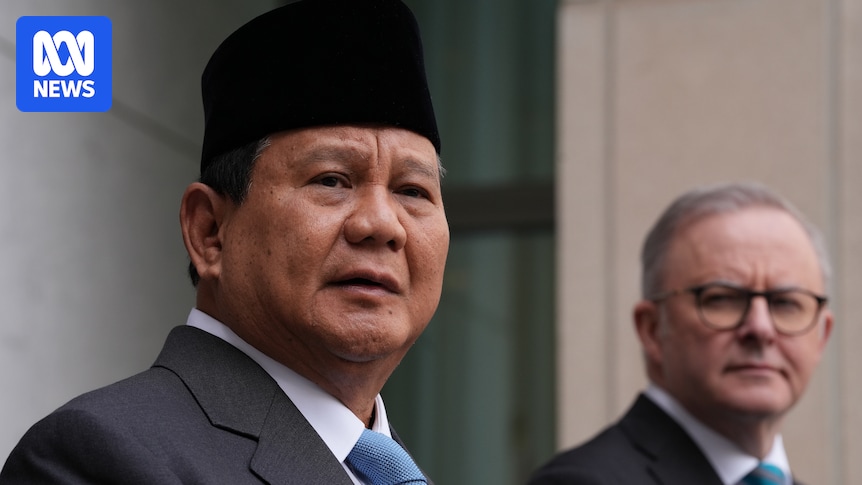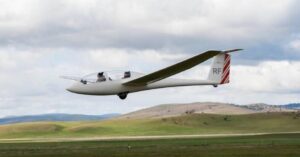
Australia has struck a historic bilateral security treaty with Indonesia, a move Prime Minister Anthony Albanese has described as a “watershed moment” for the relationship between the two nations. The treaty, which builds on the Defence Cooperation Agreement signed last year, commits both countries to regular consultations at the leader and ministerial levels on security matters and to identify and undertake mutually beneficial security activities.
The agreement also includes provisions for joint actions, with Mr. Albanese highlighting language about considering “what measures may be taken either individually or jointly” to address threats to either country. Standing alongside Indonesian President Prabowo Subianto in Sydney, Mr. Albanese emphasized that the treaty would help maintain the status quo in the Indo-Pacific region.
The new agreement appears to have been negotiated in total secrecy, with Australian officials remaining tight-lipped even as rumors of a major announcement began circulating. This development follows another significant treaty Australia negotiated recently with Papua New Guinea, which ensures mutual defense and interoperability between the Australian Defence Force and the PNG military.
Strengthening Bilateral Ties
“Australia’s relationship with Indonesia is based on friendship, trust, mutual respect, and a shared commitment to peace and stability in our region. This treaty is a recognition from both our nations that the best way to secure that peace and stability is by acting together,” Mr. Albanese stated. “It signals a new era in the Australia-Indonesia relationship.”
President Prabowo described the development as a “good neighbour policy,” emphasizing the importance of cooperation. “Good neighbours are essential. Good neighbours will help each other in times of difficulties,” he said. “In Indonesian culture, we have a saying: ‘When we face an emergency, it is our neighbour that will help us. Maybe our relatives will remain far away, but our neighbours are the closest to us and only good neighbours will help us.'”
Foreign Minister Penny Wong announced that the treaty would be signed “in the new year” following each nation’s “respective processes.”
First State Visit for Indonesian President
Mr. Albanese welcomed President Prabowo to Kirribilli House on Wednesday morning, followed by a ceremonial welcome at Admiralty House. The president, a former military commander, received a grand display, including a fly-over by two military helicopters. His whirlwind visit also included a meeting with the governor-general.
This visit marks President Prabowo’s first trip to Australia since taking office. He last visited as president-elect and defense minister in August 2024, when details of an upgraded defense agreement were finalized. At that time, the pact was heralded as the “most significant” the two countries had ever signed, although analysts noted it aligned with increased military cooperation.
Historical Context and Future Implications
While the text of the document is yet to be revealed, this treaty represents a potentially major step forward in the security relationship between the two nations, which has had a patchy history. Mr. Albanese noted that the agreement is based on the first of its kind, signed by Prime Minister Paul Keating and President Suharto in 1995. That agreement was expansive but was annulled by Indonesia during the Timor crisis when Australia led a force to restore order in East Timor.
For Indonesia, which has long adhered to a policy of non-alignment, the 1995 agreement was the first bilateral security agreement signed with any country. For Australia, the sweeping agreement with “alliance-like obligations” was seen as a major step in bolstering the relationship. Relations began to be rebuilt after the East Timorese crisis, particularly following the Bali bombings.
In 2006, the Lombok Treaty was signed, providing a treaty-level agreement on security, which was expanded in 2014. Despite its non-alignment policy, Indonesia has expanded ties with countries on both sides of US-alignment. Last year, Indonesia conducted simultaneous military drills with both Russia and Australia. At China’s largest-ever military parade earlier this year, President Prabowo was present alongside President Xi, President Putin, and North Korean leader Kim Jong Un. Indonesia and China also held joint ‘disaster relief exercises’ in 2024.
Earlier this year, Indonesia joined BRICS, a loose grouping of countries including Brazil, Russia, India, China, and South Africa, seen as a counterweight to the G7.
The announcement of this treaty signifies a strategic shift in regional dynamics, potentially influencing future collaborations and defense strategies. As both nations prepare to formalize the agreement, the implications for regional security and diplomatic relations will be closely monitored by international observers.






